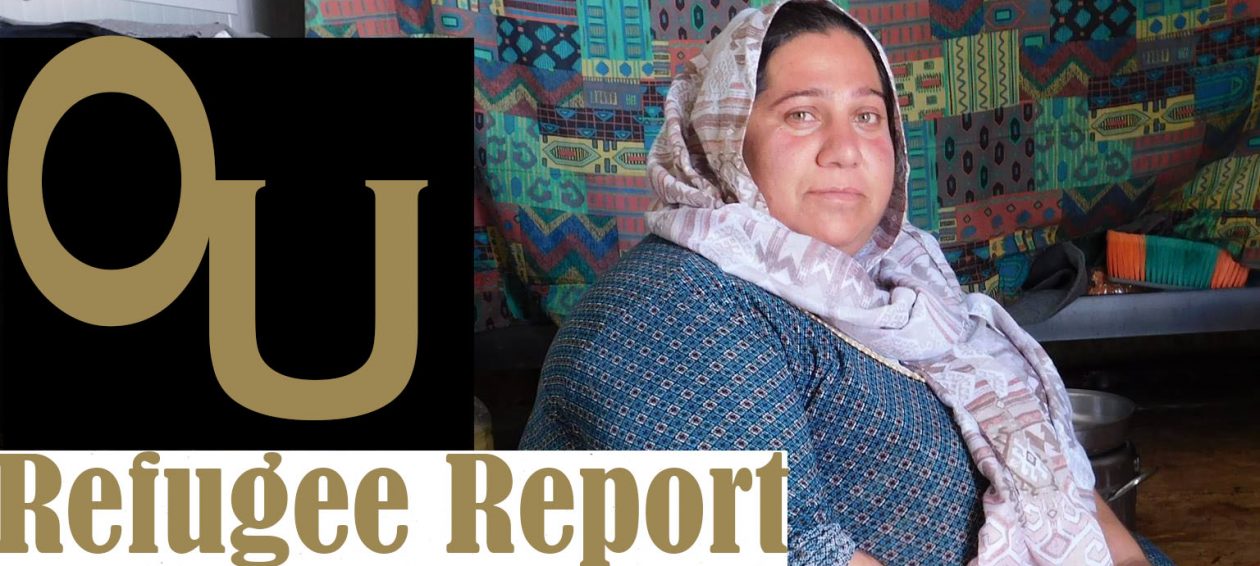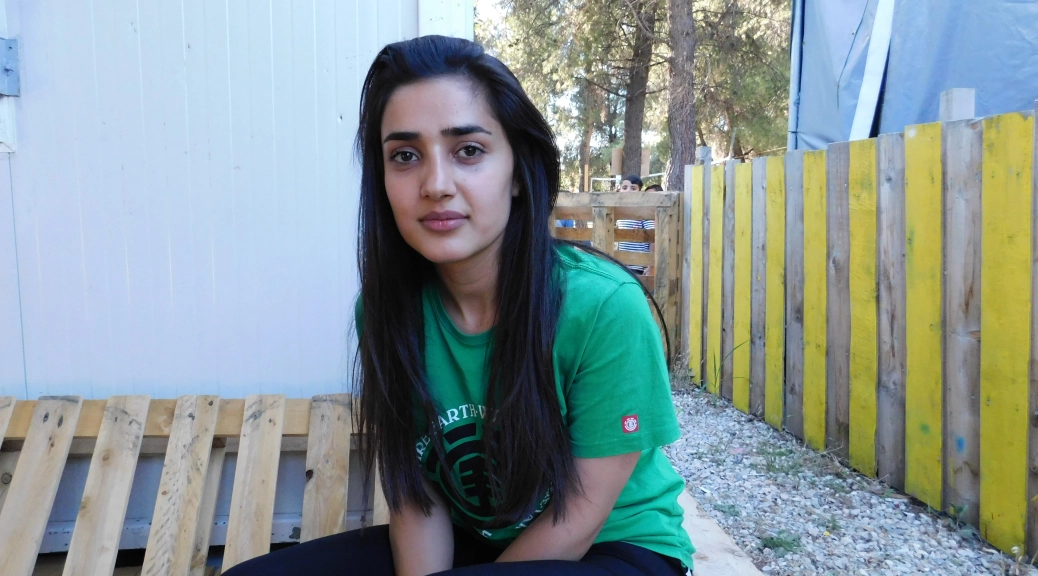By: Abigaile Kootsillas
(Ritsona Refugee Camp, Greece)— Eighteen year old Malak Othman sits in a Greek refugee camp these days reflecting on her life five years ago. When she was 13, she fled her home in Syria. She joined thousands of others in a dangerous journey across the Aegean Sea, all in hopes of a better life, of a new home where should live independently and safely.
She hopes that one day she will be able to have a conventional life, just like anyone else has.
“I’m here, its going to be one year and five months, I’m here. We don’t do anything, and that’s not what I want,” Othman said.
Othman, who is now at the Ritsona refugee camp on Greece’s mainland, says she was tired of the endless waiting, because up until now she didn’t know what she was waiting for.
Experts who work in studies of resilience say those who are most successful at avoiding depression from the unknown are those who can think about positive concepts of the future.
Matt McLarnon, assistant professor in the department of psychology at Oakland University, defined resilience as the, “self regulation that you can monitor and control yourself over your emotions, your behaviors, and your thoughts.”
It is these aspects of self regulation and how an individual is using them after an unfavorable or hostile experience that allows themselves to reach positive outcomes.
“With self regulation you can monitor and control yourself over your emotions, your behaviors, and your thoughts,” said McLarnon.
And the young refugee sitting at Ritsona agrees. Othman says the endless waiting was agonizing, until she came to understand what she was waiting for.
“We’re just waiting. Our job here: waiting. We don’t do anything,” Othman said. “But now I know what I’m waiting for…To wait just when you don’t have an idea of what you’re waiting for, that’s so bad.”
Her dreams for her future are much more simple than when she was back in Syria. She had hoped to study history or work security, now she simply dreams of normalcy.
“Here, I don’t have a house, I don’t have a normal life. I hope to live a normal life, just like that. I don’t want anything else, just a normal house, normal friends, normal city, school, just like anyone else,” Othman said.
As her dreams may have shifted, she is not letting her past experiences stop her from trying to achieve normalcy again. She is able to be resilient, bounce back from the trauma, and look forward by having hope.
McLarnon suggests that refugees like Othman who are the most resilient are those how can control their negative thoughts from the past and replace them with future hopes.
He explains that if one can constrain and control the negative emotional outbursts, short term thinking, negative thinking patters, and exercise a mindfulness idea with a long term perspective, it can go a long way.
Those who are able to implement a long term perspective, he said, are more capable of putting their life into context. They say to themselves, “things are bad now; however, they will not stay like that forever.” That perspective is what some has found that keeps them going.
Individuals who are most resilient can find this sense of hope in many forms.
A 25-year old Nigeria refugee who is based in Moria refugee camp says she has lived through “horrors you could not imagine” that caused her to flee her home. Even while she talks of the horrendous conditions at her temporary camp in Greece, she finds hope in her faith. It is her faith, she says, that motivates her to go on from one day to the next.
The young woman, who asked not to be identified even by her first name, said she does not feel like a human and is treated badly. She doesn’t know if the public thinks that people actually live or even exist here. She said that people feel like prisoners.
But what keeps her going are her plans for the future.
“I have hope to one day get out of here and move away from Greece and go to New York,” she said.
Experts, however, are quick to point out that hope and resilience are often dependent on where the refugees are in the process. They say it is much more difficult to find hope among the refugees at Moria camp on the island of Lesvos. Moria was set up solely as a processing camp, with no activities, no sense of community, just officials processing papers to send the refugees to another location. Due to the massive amount of refugees arriving daily at Moria, they sit and are stuck for up to 9 months on cots in crowded and cramped tents with 3,000 other refugees in the same seemingly hopeless position.
Although that mood often changes when they are finally transferred to the camps on the mainland says, Tasos Yfantis, a social worker for Doctors of the World Greece.
“When they arrive in Greece and they come in the mainland… this means more hope for them, and more chances, more services, more benefits,” he said. “So it’s easier, I believe, if someone moves to the mainland, especially Athens… it’s easier for families or for single persons in terms of resilience.”
Another important factor in their resilience says Yfantis, is if they are traveling alone versus with family or friends.
“If someone is alone, the resilience is lower than if he or she has a family environment or friends or a network that can support,” he said.
Prolongation, he says, can also effect a person’s resilience. The longer a refugee stays, the harder it is to be resilient.
“I believe that all of the people can show resilience, but not forever,” Yfantis said.
But often, it is just the promise of change that keeps the hope alive, even after 18 months of waiting.
Syrian refugee Haadall Morac, is one of those who finds hope despite the waiting. The 17-year old arrived in Greece one and a half years ago. The promise of moving one day to Germany has allowed her to dream.
She now dreams of attending law school in Germany. It keeps her filled with hope while she waits.
“When I go to Germany, I want to learn the language German. And after I will go to university to study, I think lawyer, because I like it a lot… it’s my dream.”
She dreams of becoming the type of lawyer who helped her navigate the road to relocation in Germany.
Not all refugees sitting in the dozens of refugee camps across Greece have found this sense of hope. Of the 80,000 asylum applications submitted in Greece in the past two years, only 18,000 have been approved. Thousands have been denied, thousands more are appealing decisions. They sit and wait for word that they can at least move out of the camps.
The waiting and uncertainty that these people face can be tormenting and exhausting. The ambiguity that refugees are forced to endure can deteriorate their mental well-being, state of mind, positivity, and their resilience—but not for all.
Experts working in mental health across the country says that the key to unlock that despair is to help them find a mindset like those of Malak Othman who has taken control of their thoughts and allow themselves to envision a positive future.
“Of course I’m not going to stay here forever,” Othman said, “I hope to live a normal life, just like that.”

